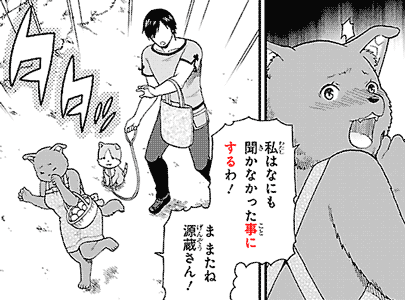In Japanese, ~koto ni suru ~ことにする (also spelled ~事にする, koto こと, plus ni に adverbial copula, plus suru する) means "to decide" or "to make it so" that things will turn out in a way when the relative clause qualifying koto is in nonpast form (future tense), or "to pretend" things have turned in a way when the relative clause is in past form.
- Tarou ga shinu
太郎が死ぬ
Tarou will die. (in the future.) - {{Tarou ga shinu} koto ni} suru
太郎が死ぬことにする
[I] will decide/make it so that {{Tarou will die (in the future)}}. (e.g. I'm writing a story and was deciding whether he lives or dies, and I'll make it so he dies.) - {{Tarou ga shinu} koto ni} shita
太郎が死ぬことにした
[I] decided/made so that {{Tarou will die (in the future)}}. (I already changed the story, or already decided it, but he hasn't died yet.) - Tarou ga shinda
太郎が死んだ
Tarou died. (in the past.) - {{Tarou ga shinda} koto ni} suru
太郎が死んだことにする
[I] will pretend/make so that (in the future) that {{Tarou has died (in the past)}}. (I'll tell everybody that's what happened, even if that's not true..) - {{Tarou ga shinda} koto ni} shita
太郎が死んだことにした
[I] pretended/made so that (in the past) that {{Tarou died (in the past)}}. (we managed to hide the truth by manipulating the newspapers and mass media, so now everybody thinks he died.)
Manga: Kemono Michi けものみち (Chapter 4)
Grammar
See the article about suru する for details on grammar. This article is mainly for examples.
The phrase ~koto ni naru ~ことになる (unaccusative) forms an ergative verb pair with ~koto ni suru ~ことにする (causative), i.e. if you X koto ni suru, that means you "cause" X koto ni naru.
- {tabako wo suwanai} koto ni shite-iru
タバコを吸わないことにしている
[I] have been making it so that {[I] don't smoke cigars}.- Is the causative of:
- {tabako wo suwanai} koto ni natte-iru
タバコを吸わないことになっている
Things have been turning out so that {[I] don't smoke cigars}. - In both sentences the fact that "I haven't been smoking cigars lately" is the same, but with ni suru we have a causer—I've been deliberately keeping myself from smoking—while with ni naru there's no explicit causer—that's how things have been for a while now for some reason.
Examples
Manga: Kemono Michi けものみち (Chapter 4)
- Context: a furry declares his love for a married kemono character who apparently wears only an apron. Unsure of what to do, she runs away.
- watashi wa {nanimo kikanakatta} koto ni suru wa!
私はなにも聞かなかった事にするわ!
I'll pretend {[I] didn't hear anything}!
(>//w//< *blushes through fur*)
I'll pretend you didn't tell me this!- I won't even tell my husband about it!
- Let's forget this happened, okay?!
- ma, mata ne, Genzou-san!
ま またね源蔵さん!
[Goodbye], Genzou-san!- mata - "again," as in "see you again," can be used to say bye.

No comments: